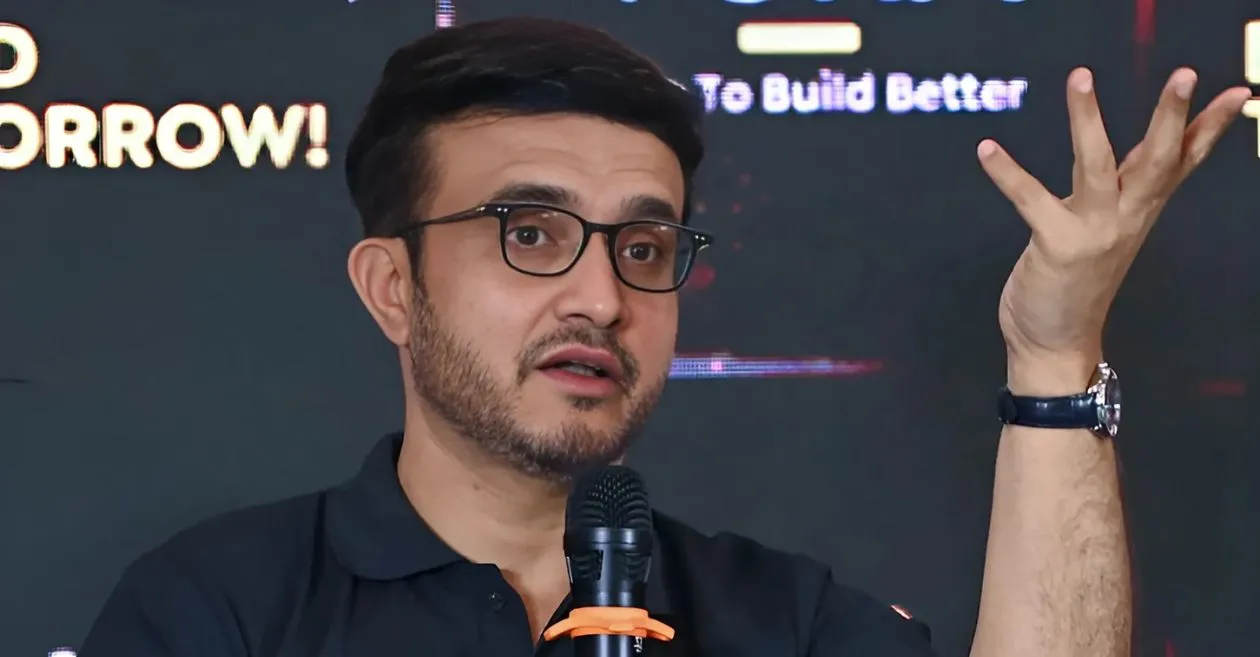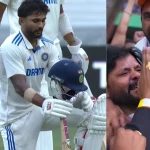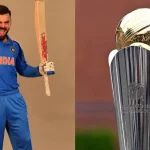From September 9 to 28, the United Arab Emirates will play host to the Asia Cup 2025, a tournament not just of cricketing brilliance but also of regional diplomacy, passion, and, this time, palpable tension. The biggest spotlight, as expected, falls on the age-old cricketing rivalry between India and Pakistan. Set to clash on September 14 in Dubai, the two sides have been placed in the same group, ensuring at least one high-stakes encounter — with possibilities of more in the Super Four or even the final.
However, this clash arrives under a cloud of national mourning and political tension following the tragic terror attack in Pahalgam, Jammu & Kashmir, which claimed innocent lives and reignited fierce public debate over whether India should even participate in sporting fixtures against Pakistan. In this emotionally charged atmosphere, former Indian captain and ex-BCCI president Sourav Ganguly has emerged as a voice of reason, calling for a separation of politics and sport while firmly condemning terrorism.
Sourav Ganguly’s Diplomatic Balancing Act
When asked about the India-Pakistan fixture amid the escalating tensions, Ganguly adopted a stance that was both compassionate and practical.
“I am okay. The sport must go on. At the same time, Pahalgam should not happen, but the sport must go on. Terrorism must not happen; it needs to be stopped. India took a strong stance towards terrorism… Sport needs to be played,” Ganguly told ANI.
His words struck a chord with many — a statesman-like declaration balancing grief, national integrity, and the cultural role of sport. Ganguly’s statement avoided jingoism but didn’t ignore the pain either. He echoed the sentiment that terrorism should never dictate the course of sporting diplomacy, even as India rightly takes a firm stand against extremist violence.
The Emotional Divide: Fans, Former Cricketers, and National Sentiment
The clash between India and Pakistan is more than just a game. It is a cultural phenomenon with historical weight, and in recent years, it has become a mirror reflecting diplomatic equations.
Following the Pahalgam attack, public sentiment has been highly volatile. Several former cricketers and public voices expressed discontent with India’s continued cricketing ties with Pakistan in such circumstances. The decision of the Indian Legends team to withdraw from the World Championship of Legends fixture against Pakistan, just days before the Asia Cup schedule announcement, underscored the emotional churning among stakeholders.
Yet, Ganguly’s balanced approach finds support in those who believe that sport must lead, not follow, political violence. For them, the Asia Cup presents a chance not only for cricketing excellence but also for resilience and healing — a public reminder of shared humanity amidst turmoil.
UAE as the Neutral Ground: Strategy or Symbolism?
While India is officially the host of the Asia Cup 2025 via the BCCI, all Indian matches will be played in Dubai, a continuation of the hybrid hosting model that allows for a neutral venue amid strained diplomatic relations. Pakistan, who had previously hosted a portion of the 2023 Asia Cup under similar conditions, agreed to the compromise — a reluctant but necessary move to ensure the tournament’s viability.
The choice of UAE, particularly venues in Dubai and Abu Dhabi, serves more than logistical convenience. It is a political and symbolic decision, reflecting the Asian Cricket Council’s (ACC) intent to preserve the spirit of the game without ignoring the diplomatic climate. The UAE has a long history of hosting India-Pakistan matches and provides an environment where security, diplomacy, and cricket can coexist — albeit tensely.
Tournament Format: Guaranteed Drama
The 2025 edition of the Asia Cup boasts eight teams and 19 matches, with the following format:
-
Group Stage: Two groups of four teams each
-
Super Four: Top two teams from each group progress
-
Final: The top two from the Super Four face off
India and Pakistan, drawn together in Group A, are all but certain to reach the Super Four, ensuring at least two encounters. Should both perform well, a third clash in the final on September 28 is on the cards — making this Asia Cup a potential trilogy of Indo-Pak rivalry.
The ACC president, Mohsin Naqvi, has hailed the format as a milestone moment for Asian cricket:
“We’re bringing together eight strong teams and showcasing 19 thrilling matches across iconic venues. This is more than a tournament — it’s a celebration of Asian cricket and unity.”
Yet unity is exactly what’s in question in 2025.
India vs Pakistan: Cricket’s Greatest Rivalry Under Pressure
No cricket match stirs global attention like India vs Pakistan. With over a billion viewers expected worldwide, broadcasters, sponsors, and fans recognize the emotional and economic magnitude of the clash. Historically, it’s more than cricket — it’s a geopolitical event watched with eagle eyes.
However, in the context of the Pahalgam attack, the stakes are no longer limited to sport. Social media is rife with calls for boycott, protests outside cricket bodies, and petitions demanding the cancellation of the fixture. A growing section of the Indian public believes that playing Pakistan “normalizes” relations, and sends the wrong message at a time when national mourning and accountability are at the forefront.
To that end, Ganguly’s view offers a pragmatic middle path: support India’s stance against terrorism but keep cricket insulated from retaliation. His leadership, even post-retirement, continues to guide Indian cricket in moments of crisis.
Can Cricket Still Be a Bridge?
The 2025 Asia Cup offers the ACC and BCCI a unique challenge — how to harness cricket’s power as a unifying force, without appearing insensitive to national tragedies. Cricket, in the subcontinent, has long been a vehicle for both diplomacy and division. From the “Cricket Diplomacy” era of the 1980s to the post-Kargil and 26/11 boycotts, the sport has navigated choppy political waters.
But the larger question remains: Can cricket still be a bridge between India and Pakistan?
For many, especially younger generations of fans, the answer is still yes. The Asia Cup 2025 is an opportunity to showcase competitive spirit, respect, and resilience — traits that transcend politics.
A Tournament of More Than Cricket
As the Asia Cup 2025 kicks off in the UAE, it will do so under the heavy gaze of the world — not just cricket fans but political observers, peace advocates, and critics alike. The tournament, especially the India-Pakistan fixtures, will be more than a test of batting and bowling prowess. They will be a test of maturity, diplomacy, and humanity.
In the words of Sourav Ganguly, “Sport must go on.” And in a region where cricket is often war without weapons, perhaps it can still be the one arena where mutual respect and competition take precedence over conflict and hatred.
Please check for information on the best betting sites in India – https://selectory.org/best-betting-sites/















